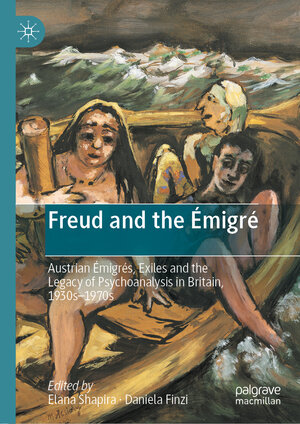
×
![Buchcover ISBN 9783030517861]()
“Although they were written largely before COVID-19 hit, he eleven essays in this collection resonate uncannily with our experience of the pandemic … . the book's chapters range across theory and methodology in history and psychoanalysis, but also in human memory and its repression, modernism, Sigmund and other Freuds of note, art and architecture, language, violence, the persistence of anti-Semitism within and outside of Austria, material culture and dispossession, fantasy and nostalgia, identity, gender and marginalization.” (Elizabeth Ann Danto, Psychoanalysis and History, Vol. 23 (3), 2021)
Freud and the Émigré
Austrian Émigrés, Exiles and the Legacy of Psychoanalysis in Britain, 1930s–1970s
herausgegeben von Elana Shapira und Daniela FinziThis book reconsiders standard narratives regarding Austrian émigrés and exiles to Britain by addressing the seminal role of Sigmund Freud and his writings, and the critical part played by his contemporaries, in the construction of a method promoting humanized relations between individual and society and subjectivity and culture. This anthology presents groundbreaking examples of the manners in which well-known personalities including psychoanalysts Anna Freud and Ernst Kris, sociologist Marie Jahoda, authors Stefan Zweig and Hilde Spiel, film director Berthold Viertel, architect Ernst Freud, and artist Oskar Kokoschka, achieved a greater impact, and contributed to the broadening of British and global cultures, through constructing a psychologically effective language and activating their émigré networks. They advanced a visionary Viennese tradition through political and social engagements and through promoting humanistic perspectives in their scientific, educational and artistic works.




